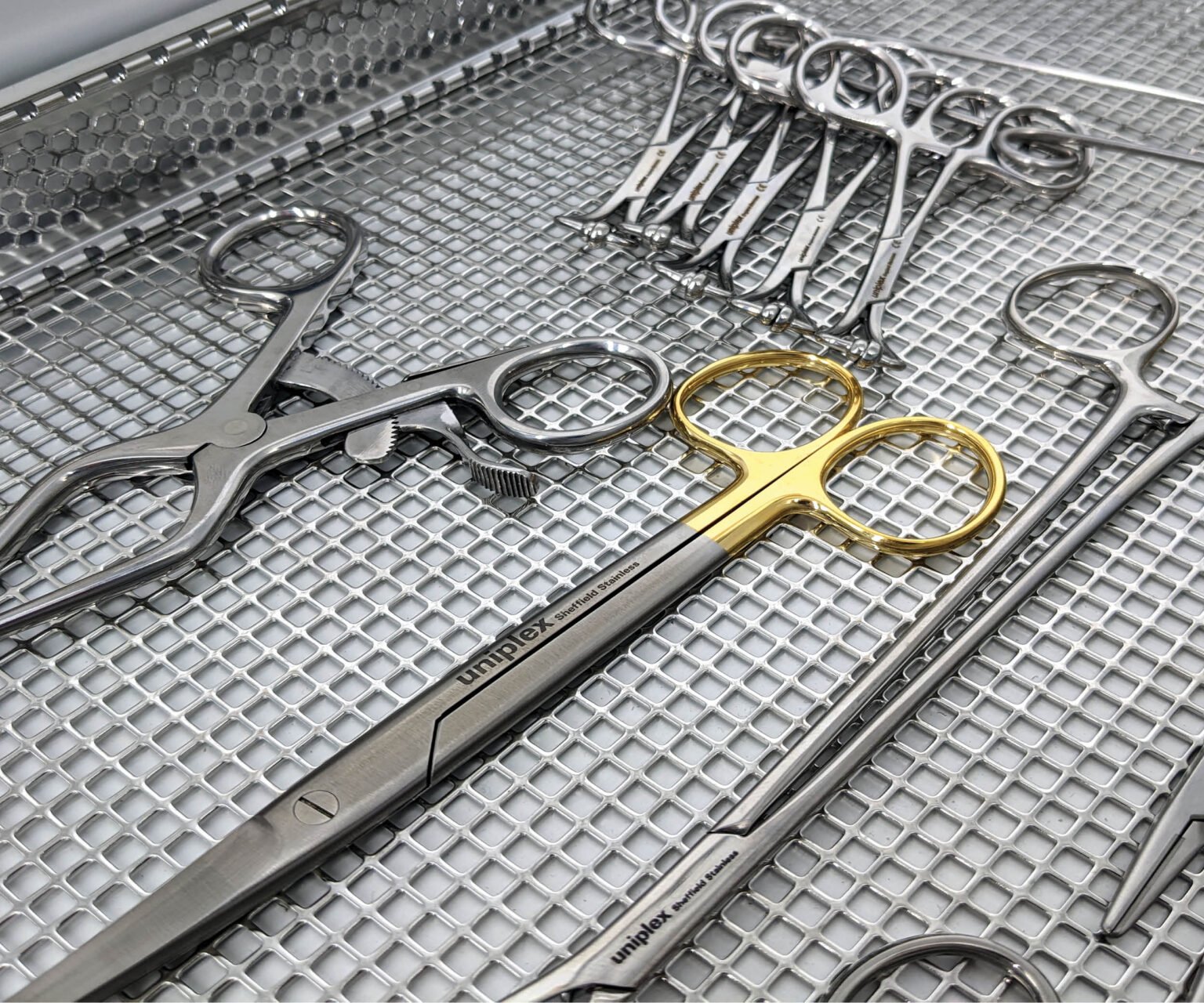
Surgical instruments are critical components in any medical setting, enabling surgeons and healthcare professionals to perform a wide range of procedures effectively and safely. In the UK, the quality, safety, and regulation of surgical instruments are paramount to ensuring patient care and successful surgical outcomes. This article explores the various types of surgical instruments commonly used in the UK, their specific applications, regulatory standards, and tips for selecting the right instruments for your practice or institution.
Understanding Surgical Instruments
Surgical instruments are tools or devices specifically designed to facilitate various medical procedures, including diagnosis, treatment, and surgery. They can be categorized into several groups based on their functions:
- Cutting Instruments:
These instruments are designed for cutting tissues, sutures, or other materials. Common examples include scalpels, scissors, and bone saws. - Grasping Instruments:
Used to hold or manipulate tissues and organs during surgery, grasping instruments include forceps, clamps, and alligator clips. - Holding Instruments:
These instruments stabilize tissues or organs during procedures. Examples include retractors and hemostatic clamps. - Suction Instruments:
Used to remove fluids and debris from the surgical site, suction instruments play a critical role in maintaining a clear field of vision for surgeons. - Electrosurgical Instruments:
These instruments use electrical currents to cut, coagulate, or desiccate tissues, minimizing bleeding during surgery.
Common Surgical Instruments in the UK
In the UK, a variety of surgical instruments in UK are widely used across different medical specialties. Here are some common instruments and their applications:
1. Scalpel
The scalpel is a small and extremely sharp knife used for making incisions in skin and other tissues. In the UK, scalpels are often available in both disposable and reusable forms.
2. Surgical Scissors
Surgical scissors come in various shapes and sizes, each designed for specific cutting tasks. They are used for cutting tissues, sutures, and drapes during surgery.
3. Forceps
Forceps are a type of grasping instrument used to hold tissues, clamp blood vessels, or remove foreign objects. They are available in multiple designs, including tissue forceps and hemostatic forceps.
4. Needle Holders
Needle holders are specialized forceps designed to hold needles while suturing. They provide a secure grip, allowing for precise suturing during surgical procedures.
5. Hemostatic Clamps
These clamps are used to control bleeding by clamping blood vessels or tissues. They are essential for achieving hemostasis during surgical procedures.
6. Electrocautery Pens
Electrocautery pens are used to cut and coagulate tissue using electric current. They are invaluable in minimizing blood loss during surgeries.
7. Retractors
Retractors are used to hold back tissues and provide visibility and access to the surgical site. They come in various shapes, such as self-retaining and hand-held retractors.
Regulations Governing Surgical Instruments in the UK
The regulation and quality assurance of surgical instruments in the UK are overseen by various agencies and organizations, ensuring that all instruments meet strict safety and quality standards. Key regulations include:
- The Medical Devices Regulations (MDR) 2002:
This legislation governs the safety and performance of medical devices, including single use forceps in the UK, ensuring they meet specific standards before being placed on the market. - UK Conformity Assessed (UKCA) Marking:
Post-Brexit, manufacturers must ensure that their surgical instruments carry the UKCA mark to indicate compliance with UK regulations. - British Standards Institution (BSI):
The BSI sets standards for medical devices, including surgical instruments, ensuring quality and safety throughout the manufacturing process. - Health and Safety Executive (HSE):
The HSE regulates the use of surgical instruments in the workplace, ensuring that health and safety guidelines are adhered to in medical settings.
Selecting the Right Surgical Instruments
When selecting surgical instruments in the UK, several factors should be considered to ensure you choose the most suitable options for your practice or institution:
1. Quality and Certification
Always opt for instruments that meet regulatory standards and have the necessary certifications. Look for the UKCA mark or other recognized quality assurance symbols.
2. Material and Durability
Surgical instruments are typically made from stainless steel or titanium due to their strength, corrosion resistance, and ease of sterilization. Choose instruments made from high-quality materials to ensure longevity.
3. Functionality and Ergonomics
Consider the specific functions required for your surgical procedures. Ergonomically designed instruments can reduce fatigue and enhance precision during operations.
4. Cost Considerations
While quality should always be prioritized, it’s essential to balance cost with functionality. Look for reputable suppliers who offer good value without compromising on quality.
Summery
Surgical instruments are indispensable tools in the medical field, especially in the UK, where adherence to strict regulatory standards ensures their safety and effectiveness. By understanding the different types of instruments available, the regulations governing them, and how to select the right ones for your practice, you can enhance the quality of care provided to patients.






